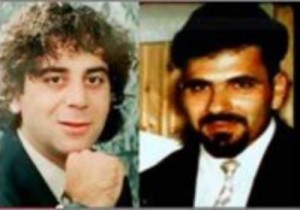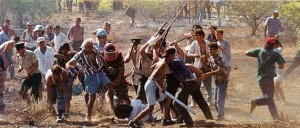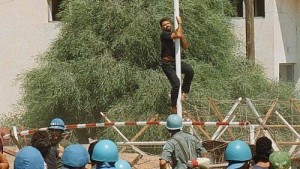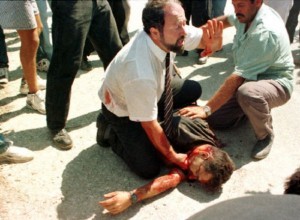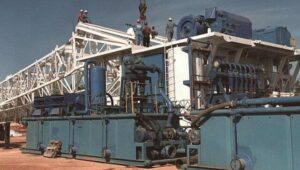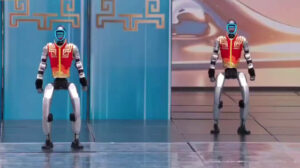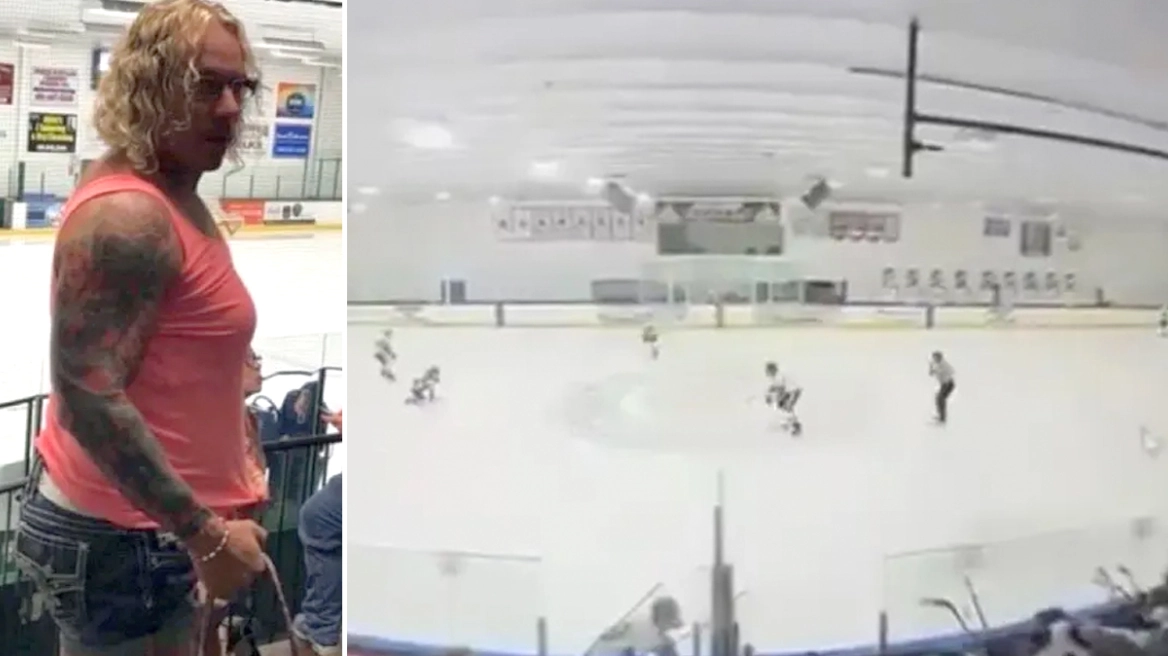Tassos Isaac, 24, and Solomos Solomou, 26, two young, brave Greek Cypriots standing up against the occupation, were brutally killed on August 11 and 14, 1996 by the Turkish occupation forces.
The civilized world should remember and honor their memories.
In August 1996, more than 200 bikers from several European countries organized a rally to the Cypriot city of Kyrenia to commemorate the 22nd year of Cyprus’ being a divided country as a result of the Turkish invasion and occupation.
But heavy political pressure – including by United Nations Secretary-General Boutros Boutros-Ghali – was applied on the Cypriot Motorcycle Federation, resulting in the cancelation of the event. Afterward, a large number of the bikers and other protesters (among them Anastasios “Tassos” Isaac) decided to march on their own in a civilian demonstration against Turkey’s military occupation.
The Hellenic Resources Network reported:
The bikers, who began their journey in Berlin, were protesting the fact that Cyprus remains Europe’s only divided country. They and their message were welcomed when they arrived in Cyprus.
“Determined to ride into the occupied territory in the name of freedom of movement, they met a military response: 24-year-old Tassos Isaac from Paralimni, Cyprus, was murdered by Turks who rained blows down on him as he struggled to free himself from barbed wire in the neutral zone in Derinia separating free from occupied Cyprus.
“As United Nations peacekeepers stood by, Isaac was beaten with clubs [and] pelted with stones for 15 minutes. Only after Greek-Cypriots managed to get him away from his assailants did U.N. forces intervene to stop the mob.
“Cypriot president Glavcos Clirides expressed his sorrow over the death of Isaac. International tolerance of the Turkish occupation, he said, encourages the Turks in their brazen brutality.
The video of the murder appears here (warning: graphic content).
When Isaac was murdered, he left behind his pregnant wife. Three days after his death, on August 14, his cousin Solomos Solomou also became a victim of the violence of the Turkish occupation forces.
On that day, a group of unarmed Greek Cypriots reentered the area where Isaac was murdered in order to demonstrate. Solomou was one of them, and began to climb a flagpole flying a Turkish flag – but was shot dead by Turkish soldiers.
A video of that incident is available here (graphic content).
Solomou’s family members described the deadly attack in their application to the European Court of Human Rights (Application No. 36832/97):
Solomos Solomou crossed the barbed wire at the Turkish ceasefire line and entered the occupied territory. He was pursued by a British soldier from UNFICYP, who attempted to pull him back.
“Solomou broke free from the British soldier and attempted to climb the pole where the Turkish flag was flying. He was unarmed, was not acting in a manner which could have been considered threatening, and was smoking a cigarette.
“While he was approximately three meters up the pole, he was hit by five shots fired by at least three persons from the Turkish side, and was fatally injured. He died almost instantly. The Turkish forces then opened fire in an indiscriminate manner, wounding two members of UNFICYP, a civilian in the buffer zone and a civilian who was standing behind the Cypriot Government’s ceasefire line.
In 2008, the European Court of Human Rights found Turkey guilty of violating Solomou’s right to life and of failing to conduct an effective investigation into the circumstances in which he was killed.
“It is worth noting that the victim was hit by five bullets, a fact which is hard to reconcile with the theory that his shooting was not intentional,” the court added.
The court also noted that Solomou’s family’s description of the murder was “confirmed by the photographic evidence and by the video film of the shooting.”
Solomou was a refugee from the Cypriot city of Famagusta, occupied by the Turkish army since 1974. His family had lost their home and land, which fell under the control of the Turkish occupying military. They were forced to leave their hometown behind and fled to the nearby town of Paralimni, where they began their lives anew with other Greek Cypriot refugees.
The Turkish army attacked Famagusta in the summer of 1974, committing horrifying crimes. Turkish troops chased out all the Greek citizens, killing many and ransacking the city. Its aim was to terrorize the Greek Cypriots and to sweep them southward.
“On Augusta 14,” wrote author Victoria Hislop, “the Greek Cypriot population fled in terror, in cars, on buses, by foot, taking nothing but the clothes they stood up in. They expected help from a foreign power, but none came, and their evacuation turned into weeks, then months, then decades.”
As was the case with hundreds of thousands of other Cypriots, the life of Maria Hadjivasili, who grew up in 1960s Famagusta, also changed completely after the occupation of her town:
“We heard that civilians had been killed and women raped,” she said. “People were anxious for their daughters. I heard that one of my school friends was raped and killed.”
It was these abhorrent crimes and more that Isaac and Solomou were protesting.
Watch a video of Solomou’s funeral:
“As a result of the Turkish invasion and subsequent occupation of 36.2 percent of the territory of Cyprus, 170,000 Greek Cypriots – who constituted two-thirds of the inhabitants of the occupied area – were forced to flee from their homes,” reported the Ministry of Foreign Affairs of Cyprus.
What is even more tragic is the fact that, during the period of the Turkish invasion, world opinion did not raise much of an outcry. And since there still is no international outrage, the occupation continues − accompanied by similar rights abuses.
On June 21, 2013, for example, Koray Basdogrultmaci and Cinel Senem Husseyin, a Turkish-speaking Cypriot couple living in the occupied north of Cyprus, were arrested and kept in jail for 6 1/2 hours. Their trial lasted for months until all charges were dropped against them in June 2015.
Their crime? Flying three Cypriot flags outside their home and shop.
Before the eyes of the entire world, Cyprus, which has been Hellenic for 3,500 years and Christian for 2,000 years, has been illegally occupied, ethnically cleansed and colonized at the hands of Turkey for more than 40 years.
And nothing has changed from 1974 to today in occupied northern Cyprus except for the increase of the number of settlers imported from Turkey. The Turkish government, which still cannot even tolerate the Cypriot flag in Cyprus and illegally keeps the island divided under a regime that is worse than apartheid, continues to impose its “solution” of perpetual occupation.
Isaac and Solomou did what all other dignified people of outstanding courage would have done under similar circumstances.
The world owes them and all Greek Cypriots a reunited Cyprus free from occupying troops and imported settlers, and a genuine apology for leaving them alone in the face of a tyrannical invading force.
Ask me anything
Explore related questions

